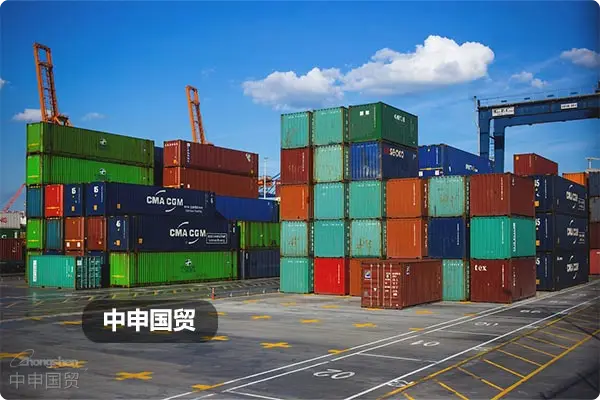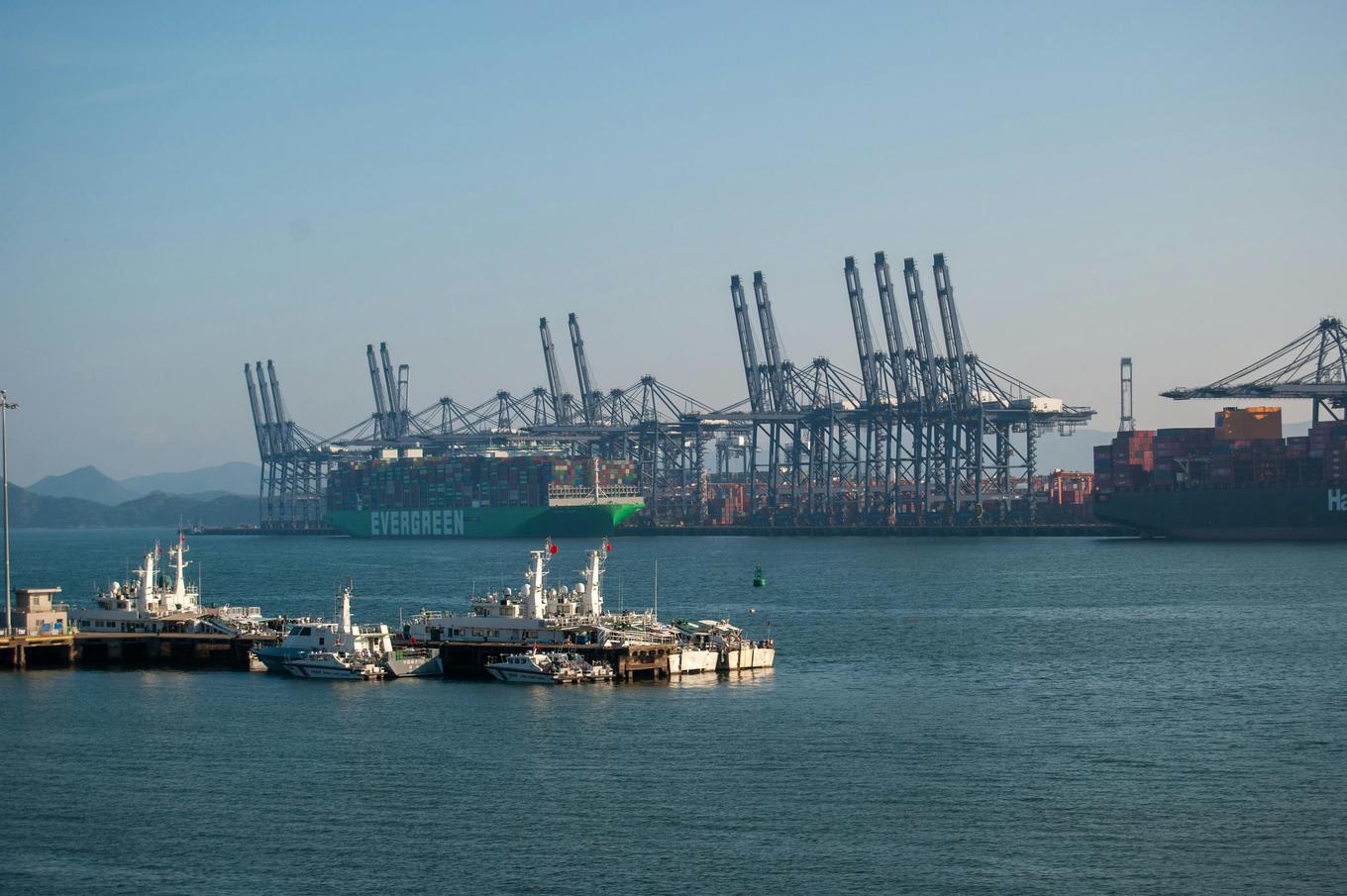- Shanghai Zhongshen International Trade Co., Ltd. - Two decades of trade agency expertise.
- Service Hotline: 139 1787 2118

German Imported Hydraulic Components: Actuationforeign tradeA New Chapter in Imports
Under the wave of economic globalization, the demand for importing hydraulic components from Germany is increasing. Whether in industrial production or the field of mechanical manufacturing, German hydraulic components are highly favored for their superior quality and advanced technology. However, the complexity of foreign trade procedures for importing such products should not be underestimated, and at this point, professional foreign trade agents become particularly crucial.
Professional document processing and logistics arrangements
For importing hydraulic components from Germany, document processing is the crucial first step. In international trade, various documents serve as the "passports" of transactions and are indispensable. From commercial invoices and bills of lading to packing lists, each document carries vital information and must comply with international trade regulations as well as the relevant requirements of the destination port.
The commercial invoice, serving as a transaction document between the buyer and seller, must detail the description, quantity, and value of the goods. The bill of lading, as proof of ownership of the goods, must be filled out accurately; otherwise, it may lead to issues during transportation. The packing list should clearly present the detailed contents of each package to facilitate customs inspection.
Our company has extensive experience in document processing, ensuring that each document is accurately completed in strict compliance with requirements to avoid delays and additional costs caused by documentation errors.
Logistics arrangements are equally crucial. From Germany to China, selecting the appropriate mode of transportation is key to ensuring that goods arrive on time and safely.Maritime TransportationGenerally the preferred choice for large-volume shipments, its advantage lies in lower costs and the ability to handle substantial cargo quantities. However, sea freight has relatively longer transit times, requiring advance planning of the shipping cycle. If the goods are more urgent, you may considerAir TransportationAlthough the cost is higher, the transportation speed is fast, which can meet the needs of customers with high time requirements.
During the logistics process, it is also necessary to consider the packaging and insurance of the goods. Hydraulic components are precision equipment and require sturdy, shock-proof packaging to prevent damage during transportation. At the same time, purchasing cargo transportation insurance is essential, as it ensures corresponding compensation in case of accidental loss of the goods.
For French accessories targeting Russia, a distinctive advantage is VTBs settlement convenience. VTB Bank as a major Russian financial institution maintainsFX Settlement Agencyclose cooperation. Using VTB channels simplifies cumbersome procedures and accelerates settlements.
Although our topic this time is German imported hydraulic components, but inimport and exportIn business, a multi-market layout is a common strategy. The Russian market has always been one of our key business regions. When conducting trade with Russia, the settlement process often encounters certain challenges. However, our company possesses a unique advantage for the Russian market—VTB settlement convenience.
Foreign exchange settlement, simply put, is the process of converting foreign currency into domestic currency. In trade with Russia, due to factors such as the Russian financial system and international sanctions, the settlement process may become complicated. However, by conducting foreign exchange settlement through VTB Bank, we can complete this process more smoothly. VTB Bank holds a significant position in the Russian financial market, with a stable and efficient settlement system. We have established a long-term and stable cooperative relationship with VTB Bank and are familiar with its settlement procedures and requirements.
The specific process is as follows: First, after the goods are exported and the relevant documents are obtained, we will submit the documents to VTB Bank. The bank will then review the documents to ensure they meet the requirements for foreign exchange settlement. Once approved, the bank will convert the foreign currency into RMB at the current exchange rate and disburse the funds to our clients. The entire process is efficient and secure, significantly reducing the risks and time costs associated with foreign exchange settlement.
Southeast Asia Market Import/Export Process & Solutions
The Southeast Asian market is also one of the key service regions for our company. Regarding the import of hydraulic components from Germany, if it involves the Southeast Asian market,Entrepot TradeIt can also be sold directly, with specific requirements for its import and export processes.
In terms of the import process, the first step is to classify the goods. According to the Harmonized Commodity Description and Coding System (HS Code), accurately determine the code for hydraulic components, which is related to the determination of tariff rates and relevant regulatory conditions. After determining the HS Code, an import license must be obtained (if required). Different hydraulic components may be subject to varying import controls due to factors such as their intended use and technical parameters.
Next is the customs declaration process. Before the goods arrive at the destination port, we need to prepare a complete set of customs declaration documents, including the commercial invoice, bill of lading, packing list, import license, etc., to declare to customs. The customs authorities will inspect the goods, primarily checking their authenticity, quantity, value, and compliance with relevant regulations. If the inspection is passed, customs will levy the corresponding tariffs and value-added tax, then release the goods.
When exporting to the Southeast Asian market, it is equally important to pay attention to the relevant procedures. First, it is necessary to understand the import regulations and standards of the destination country to ensure that the products meet the local market access requirements. For example, some Southeast Asian countries have strict regulations on the quality and environmental protection of imported goods.
In terms of documentation, in addition to the usual commercial invoices and bills of lading, you may also need to provideIt is recommended to verify through the following methods:Books, to enjoy preferential tariff treatment. In terms of logistics and transportation, it is necessary to choose the appropriate transportation method and route based on the destination of the goods and the delivery time. For some landlocked countries, it may also be necessary to consider delivering the goods to the final destination via land or inland waterway transportation.
For the Southeast Asian market, our company offers comprehensive solutions. We have an in-depth understanding of the trade regulations and market characteristics of various countries, enabling us to plan import and export processes in advance for our clients, avoiding issues that may arise from unfamiliarity with local rules. In terms of logistics, we collaborate with multipleInternational LogisticsThe company has established long-term cooperative relationships, enabling it to provide customers with the most optimized transportation solutions and reduce logistics costs.
Challenges and Opportunities in the Current International Trade Landscape
Currently, the international trade landscape is complex and ever-changing, presenting both challenges and opportunities for the business of importing hydraulic components in Germany.
In terms of challenges, the rise of trade protectionism is a factor that cannot be ignored. To protect their domestic industries, some countries have introduced various trade restriction measures, such as raising tariffs and setting up trade barriers. This directly leads to an increase in import costs and reduces the competitiveness of German hydraulic components in the international market. At the same time, exchange rate fluctuations also bring uncertainty to trade. Frequent changes in currency exchange rates may result in exchange losses for enterprises during settlement, affecting their profits.
Furthermore, the outbreak of the global pandemic has also dealt a severe blow to international trade. Frequent issues such as logistics disruptions and supply chain interruptions have posed significant challenges to the timely delivery of goods.
However, opportunities also exist. With the gradual recovery of the global economy, the demand for industrial products is steadily rebounding. German hydraulic components, as representatives of high quality, still hold broad prospects in the market. Meanwhile, the advancement of digital technology has brought new opportunities to international trade. Through e-commerce platforms, companies can more conveniently expand into international markets and reduce marketing costs.
Facing these challenges and opportunities, our company has responded proactively. In terms of trade protectionism, we closely monitor changes in trade policies across various countries, promptly adjust our business strategies, and seek new markets and partnership opportunities. To mitigate exchange rate fluctuations, we employ financial instruments for hedging to reduce currency risks. Amid the impact of the pandemic, we have strengthened communication and collaboration with logistics providers, optimized shipping routes, and ensured timely delivery of goods.
Product certification services
In the process of importing hydraulic components from Germany, product certification is an essential step that cannot be overlooked. Different markets and industries have varying certification requirements for hydraulic components. For instance, the CE marking for the EU market serves as a passport for products to enter, demonstrating compliance with relevant EU directives and harmonized standards.
For the Chinese market, certifications that comply with national or industry standards may be required. Although our company does not directly provide certification processing services, we have a professional team capable of assisting clients in understanding the detailed requirements of necessary certifications and offering relevant guidance and advice.
We will assist clients in navigating the certification process, informing them of the required documents and key considerations. For instance, when applying for CE certification, it is necessary to provide the product's technical documentation, test reports, and other relevant materials. Additionally, we will help clients select the appropriate certification body to ensure a smooth certification process.
In summary, importing hydraulic components from Germany involves multiple aspects such as document processing, logistics arrangements, settlement of foreign exchange, import and export procedures, and product certification. With our professional capabilities and extensive experience, our company is able to provide clients with comprehensive foreign trade agency services, helping them achieve success in international trade.
Related Recommendations
? 2025. All Rights Reserved. Shanghai ICP No. 2023007705-2  PSB Record: Shanghai No.31011502009912
PSB Record: Shanghai No.31011502009912










